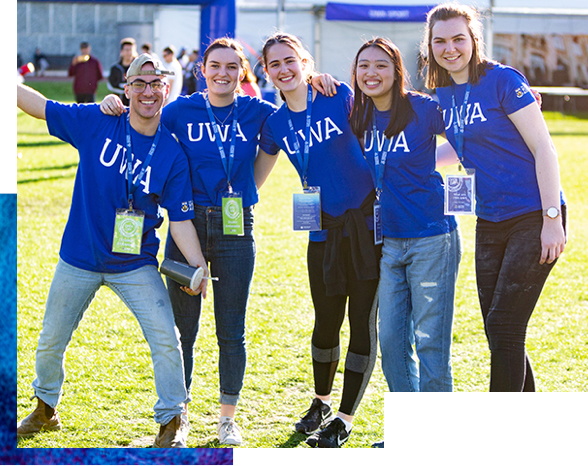Postgraduate
Master of Mining and Energy Law
Contact us
Address
Student Central
The University of Western Australia (M355), 35 Stirling Highway, Perth, Western Australia 6009
Telephone
131 UWA (131 892)
International
(+61 8) 6488 1000
Hours
Frequently asked questions
Events you may be interested in
Show more eventsCareers and further study
Explore the career opportunities available to you.
Career Pathways
This course will appeal to lawyers wanting to move into the mining and energy area and for non-lawyers such as engineers, geologists, marketing professionals, and commercial and finance professionals who wish to develop their skills to advance their careers. While it has a legal focus, this course will assist those wanting to pursue a career related to mining and energy.
Career opportunities exist in resource companies, law firms and local and state government.
Further Study
Fees and scholarships
Learn more about the fees that apply to you for this course.
Domestic Student Fees
There is no current fee information available for this course. Please visit the fee calculator to browse course fees from a previous year, or other courses.
Scholarships
Scholarships are available to students from a diverse range of backgrounds, including academic achievement, financial need, educational disadvantage, leadership and community service, artistic or sporting achievements, and being from a rural or remote area.
Cost of living
International Student Fees
There is no current fee information available for this course. Please visit the fee calculator to browse course fees from a previous year, or other courses.
Scholarships
Scholarships are available to students from a diverse range of backgrounds, including academic achievement, financial need, educational disadvantage, leadership and community service, artistic or sporting achievements, and being from a rural or remote area.
Cost of living
Admission requirements
If you’re interested in furthering your career by studying this postgraduate course, find out the admission details below
Admission Requirements
2(a) (i) a bachelor's degree in a cognate area, or an equivalent qualification, as recognised by UWA; and (ii) the equivalent of a UWA weighted average mark of at least 50 per cent; or
3(a) (i) a bachelor's degree, or an equivalent qualification, as recognised by UWA; and (ii) the equivalent of a UWA weighted average mark of at least 50 per cent; and (iii) at least two years of relevant professional experience.
Ranking and Selection Process
English competency
English is the language of instruction and assessment at UWA and you will need to meet the English language requirements of the University to be eligible for a place.
This course has higher ELC requirements. Applicants presenting with the IELTS Academic require an overall score of at least 7.0 and no band less than 6.5. For more information visit ELC requirements.
How to apply

Ready for the next step?
Find out how to apply through our simple online application process.
We'll guide you through our entry requirements, admission pathways available to you and application deadlines for your chosen course.
We can’t wait for you to join us!
Course details
About the course
This course is designed to give legal and non-legal professionals the expertise to pursue careers in the mining and energy industries.
Subject areas include exploration and production of minerals and petroleum in Australia, native title, concepts of sustainability and social license to operate as well as other broad policy objectives.
Quick details
- Available
- Perth (Crawley campus)
- Full-time
- Part-time
- On-campus
- Units commence throughout the year. For further information and unit availability visit the Law School web page.
- The estimated time commitment for a standard full-time enrolment is approximately 46 hours per week (over 13 weeks) which includes contact hours, personal study and examinations.
- Postgraduate
- 20550
- 091153G
Course structure
Postgraduate coursework degrees and combined (coursework and research) degrees comprise a number of units. Refer to the course structure for more information.
Why study this course?
- The units in this course make extensive use of outside industry experts who give meaningful and current insights.
- Units explore practical case studies that aid your understanding of the commercial context and allow you to evaluate different legal solutions to practical problems. Professionals in industry participate in these case studies which adds to their relevance and practicality.
- Assignments are designed to improve your skills in identifying and analysing commercial and legal issues and writing in a clear and well-reasoned manner.
Flexibility
We understand that life is busy. That's why our postgraduate courses are designed so you can balance your work and studies. Our flexible postgraduate experience includes the opportunity to study part time, a range of units that are taught after hours, and the option to learn via intensive units. Ask our Student Central team for advice on choosing the right postgraduate route for you. Find out more here.
Western Australia's premier Law School
The UWA Law School is ranked in the top 150 law schools in the world for Law and Legal Studies (QS 2025). You will join and contribute to 90 years of excellence: we are the first law school established in WA and the fifth oldest in Australia.
Our graduates include a Prime Minister, a Governor of Western Australia, State Ministers, Justices of the Supreme Court of WA, a Young Australian of the Year, Rhodes Scholars, and more.
While we have a long and proud history, we're also a closely-knit, creative and progressive Law School, fostering critical thought, ethical scholarship and practice, a deep connection to our Indigenous past and present, and supportive student culture based upon wellbeing and inclusion.
Centre for Mining, Energy and Natural Resources Law
The Centre for Mining, Energy and Natural Resources Law has a successful research record going back to its establishment within the Law School at The University of Western Australia in 1990.
It was initially established in recognition of the importance of both the resources and the commercial sectors to the Western Australia economy. In recent years the focus and emphasis of the Centre broadened to include a wide range of mining, energy and natural resources law matters.
The research areas of the Centre all have practical elements and this engagement enhances the research of the Centre by ensuring it is relevant and current.


